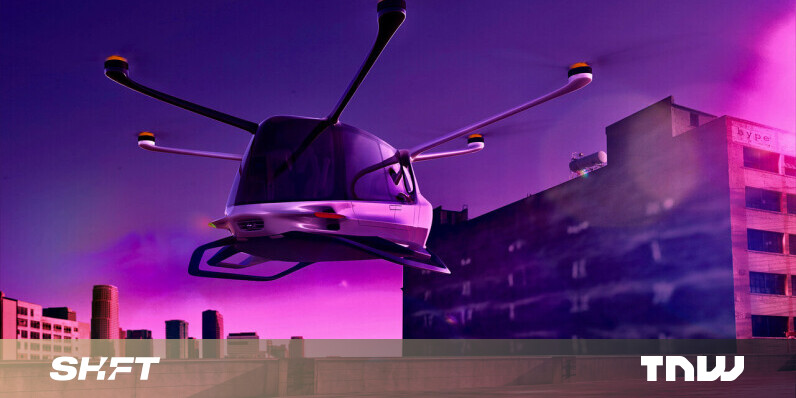#A behind the scenes look at hydrogen powered VTOL.

Table of Contents
“#A behind the scenes look at hydrogen powered VTOL.”
I recently spoke to Brian Morrison, co-founder and Director, to find out more.
Why is Skai using hydrogen, not lithium-ion batteries?
Firstly, I was curious why hydrogen instead of Lithium-ion batteries. Morrison said:
“Lithium-ion batteries scare me.” He recalled the Boeing 787 lithium-ion battery fires in 1987. Boeing had delivered the aircraft to the airline just 18 days prior. In that time, the plane logged 22 flight cycles without incident.
Another 787 made an emergency landing in Japan after pilots received a battery malfunction warning five days later.
These two events led the FAA to ground the entire 787 fleet. It was the first time the agency had given such an order for a line of aircraft since 1979.
As Morrison explained:
The more energy you try to draw out of the battery, the hotter it gets. You want to recharge it as quickly as possible. But the more energy you’re trying to put into the battery as quickly as possible, the hotter it gets. At some point, it becomes dangerous, and managing that across hundreds or thousands of battery packs will be a real challenge.
Morrison has an extensive history in aviation, including developing black box recorders. He recalled:
I started looking at eVTOLs as a serious possibility in 2012. I did literally hundreds of simulations to convince myself that battery eVTOL was viable. And I wound up convincing myself that it wasn’t.
Every time you double the amount of battery on board, you’re increasing the weight so much that we’re only going to get another two or three or four minutes of flight time.
A lonely approach to aircraft innovation
Morrison refocused on hydrogen fuel cells, noting a family history. His dad was a senior program manager on the Apollo program — the Apollo mission used fuel cells to generate electricity. He filed the first patents in 2013, and he notes:
We’re taking a lonely but fundamentally different approach because it’s safer and better for the environment and safer and better for the passengers.
How receptive is the FAA to a hydrogen VTOL like Skai?
Morrisonn has a long history of involvement in flight certifications for Boeing and Airbus.
He explained:
With previous FAA meetings, you might get three or four FAA representatives to show up. In our first eight or nine meetings with the FAA on this program, we’ve never had less than 25 FAA representatives. They’ve been extraordinarily supportive. It’s a new technology to them, so they’re excited about it.
According to Morrison, the biggest challenge from the FAA standpoint was the uniqueness of the vehicle:
It’s not a Part 23 fixed-wing aircraft. It’s not a part 27 rotorcraft, it’s a combination of requirements in-between those two, plus it’s an electric aircraft. Plus, it’s hydrogen fuel cells. So it took almost a year and a half to beat our way through an accumulated list of requirements that everybody could agree on.
VTOL production is a highly competitive space
How does the Skai team stack up to other founders in the space? Morrison said:
Early on, Uber was having meetings where they tried to bring the whole eVTOL community together. And in these meetings, there’ll be a roomful of heavily venture-funded people that have never certified an aircraft before.
They were saying some of the most ridiculous things. “Oh, well, we’ll just tell the FAA, this is how it’s gonna be. We don’t need such and such requirements.”
The degree of rigor required surprises them. There’s not just hand waving that says, “Yeah, that looks good enough, right, and take off. It’s a massive undertaking.”
Long-distance flight with easy refueling infrastructure

The Skai is being made to handle a four-hour flight without the need to refuel. It’s able to land almost anywhere as it hasn’t the refueling infrastructure limitations of traditional eVTOLs.
As Morrison asserts:
A lot of eVTOL folks are panicking about vertiports and building out supplies to charge their batteries.
But we don’t need that. We can fly, deposit passengers, pick up new passengers, fly to another location, do that six, or eight, or ten times up to the 400-mile range. And then, we can move to either a mobile refueling truck or to a fixed tanker location on the ground. Fuelling the vehicle takes between six and eight minutes.
He also noted that nobody wants to talk about the emissions behind the energy produced by megawatt eVTOL battery chargers.
Skai has signed a deal with Orbital Marine in the UK to take tidal energy from the River Thames and convert it to green hydrogen. Definitely a powerful collaboration.
What’s the market for a hydrogen VTOL like Skai?
So, who’s going to fly in a Skai?
Emergency responders and the US National Guard are a crucial audience for Skai, especially when they otherwise can’t access jet fuel due to flooding.
Further, the National Guard can operate under military authority, exempting them from FAA certification requirements. This makes it possible to build and deliver vehicles to the National Guard much earlier.
Cardinal missions are also a focus. In these, VTOLs are operated to offshore locations ahead of FAA certification carry supplies, providing an opportunity to gain experience with a vehicle.
But everyday aviation is also in the works too. Skai has a letter of intent with a LA company to buy 40 vehicles to start and an option for as many as 1320 vehicles for traditional people moving.
Of course, the challenge is getting from idea to end product.
The economy of scale
One of the biggest problems in aviation has been an inability to scale. As Morrison explained: “They see mass production across the entire industry as producing 900 aircraft a year. That’s not mass production.”

Alaka’i’s goal from day one has been to design a vehicle with automotive standards. Thus, an automotive-style production line makes it easy to scale. According to Morrison:
It’s not that different from a Tesla when you think about it. Skai has electric motors and a carbon-fiber structure. We have rotors instead of tires. And we have an avionics electronics panel instead of a self-driving.
If you ask me, cheaper production costs make it possible to achieve mass production. Cheaper aircraft also means more affordable flights. So while Skai won’t be first in the sky, it does offers a green pathway into the future of aviation. And that’s never been more critical than now.
If you liked the article, do not forget to share it with your friends. Follow us on Google News too, click on the star and choose us from your favorites.
For forums sites go to Forum.BuradaBiliyorum.Com
If you want to read more like this article, you can visit our Technology category.




